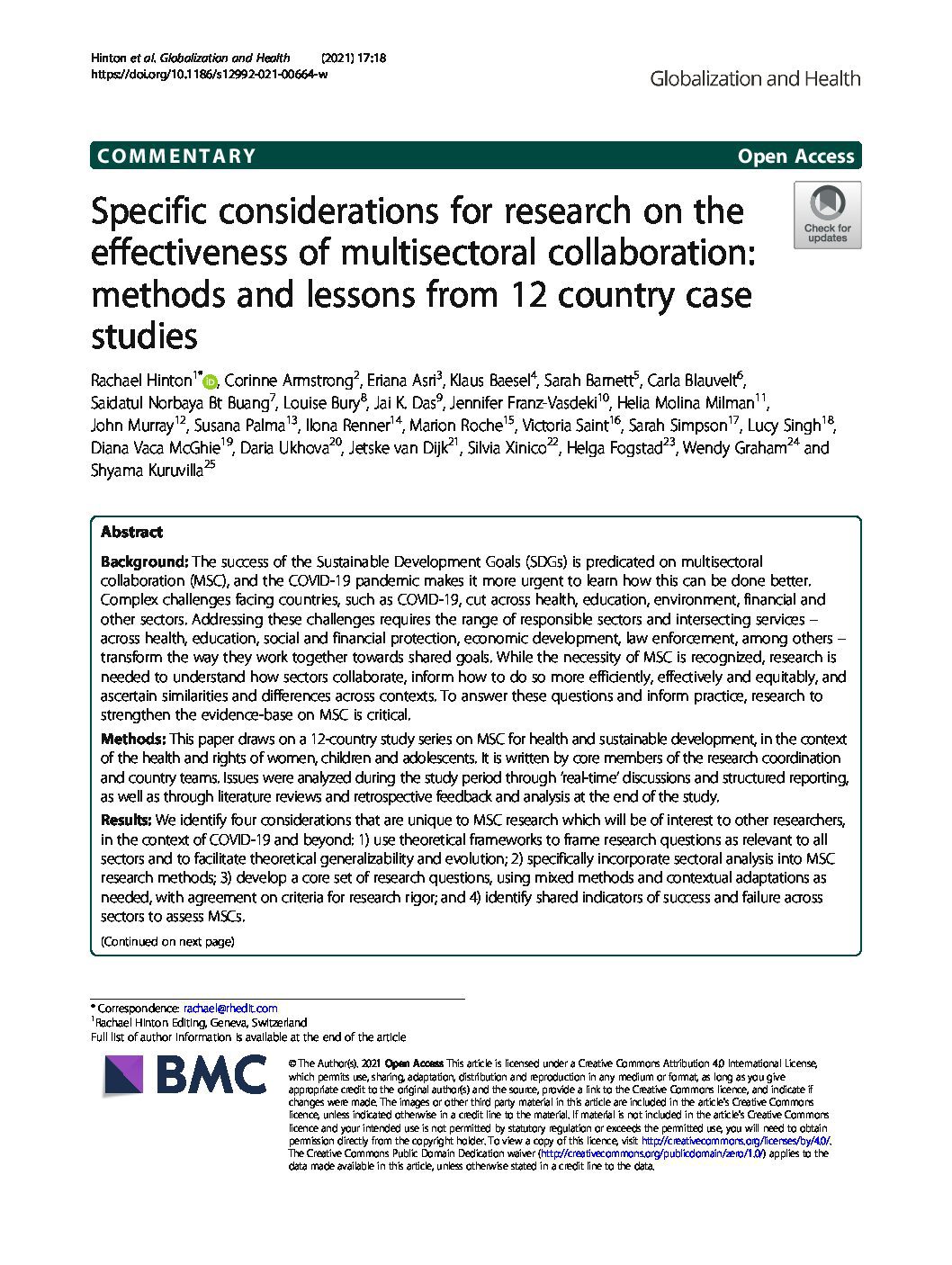Blog
Seven can’t-miss moments for global nutrition in 2023
January 11, 2023
Specific considerations for research on the effectiveness of multisectoral collaboration: methods and lessons from 12 country case studies
Overview
This paper draws on the 12-country study series on multisector collaboration (MSC) for health and sustainable development, in which the Indonesia WIFA Multisector Collaboration was part of (published in the BMJ in 2018). This paper recommends several points for considerations on MSC research, for example how one size fits all does not apply to MSC, the importance to highlight political nature of partnership and collaboration such as how MSC are framed, coordinated, resourced, and measured. Acknowledging the dynamic process of the MSC, it is essential to conduct stakeholders’ analysis to better understand the diverse ways of working and how each sector contribute to common goal. And lastly, definition of success in MSC goes beyond standard health development indicators and needs to include the process and dynamic of collaboration itself.
Download

Published by: Globalization and Health
https://www.nutritionintl.org/wp-content/uploads/2021/02/Hinton-R-et-al.-Specific-considerations-for-research-on-the-effectiveness-of-multisectoral-collaboration_methods-and-lessons-from-12-country-case-studies.pdf
PDF (706.00 KB)